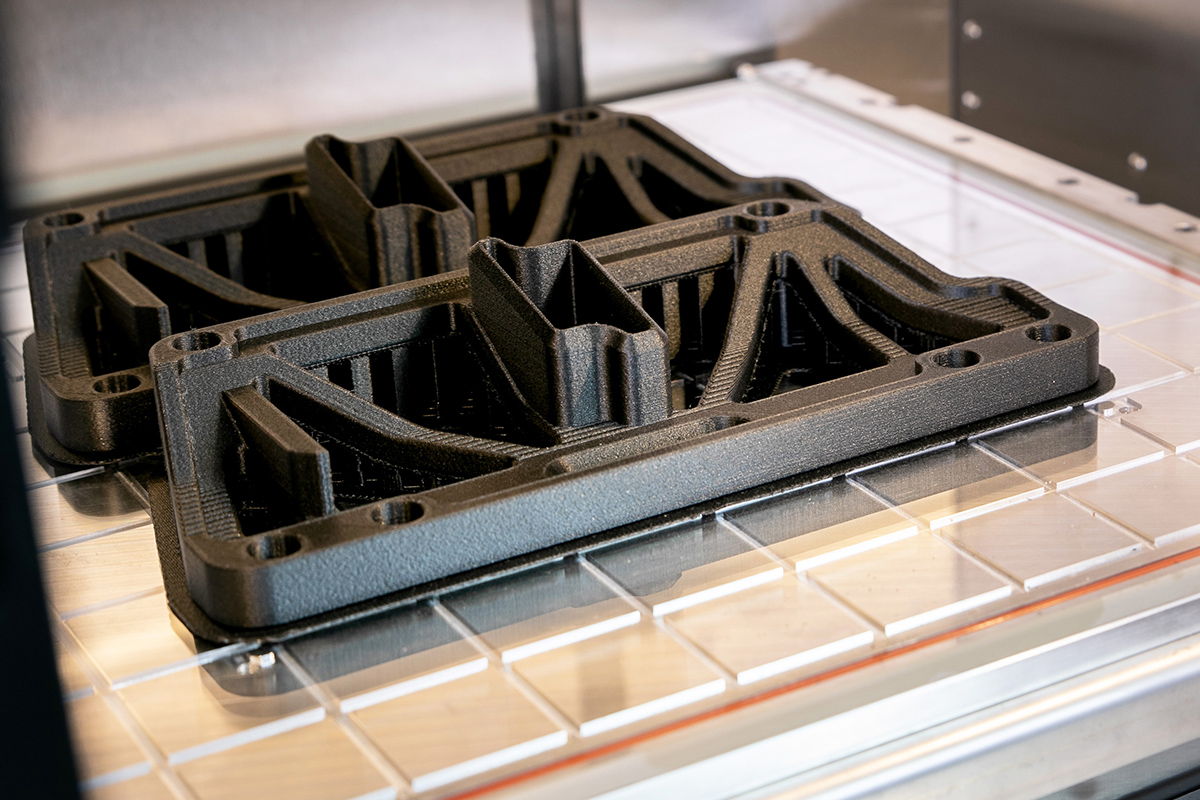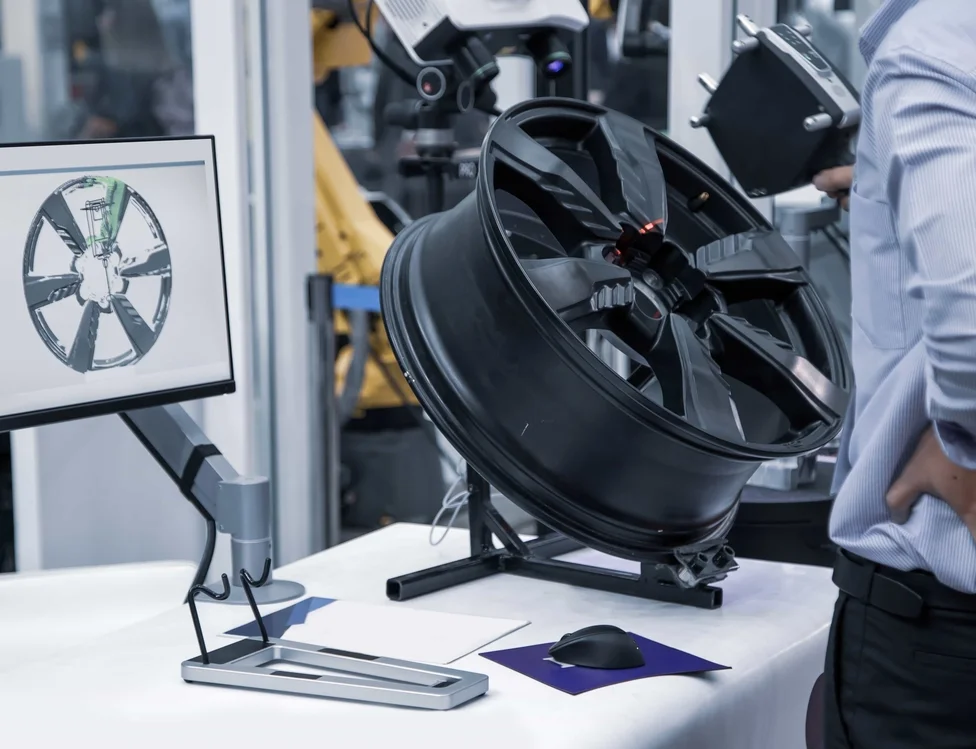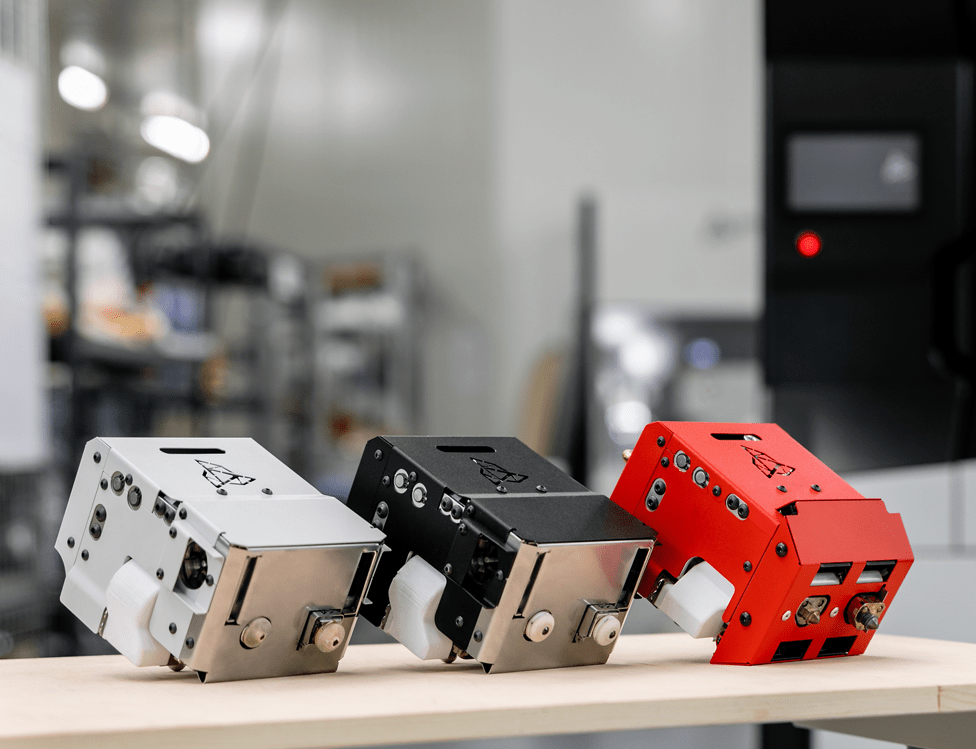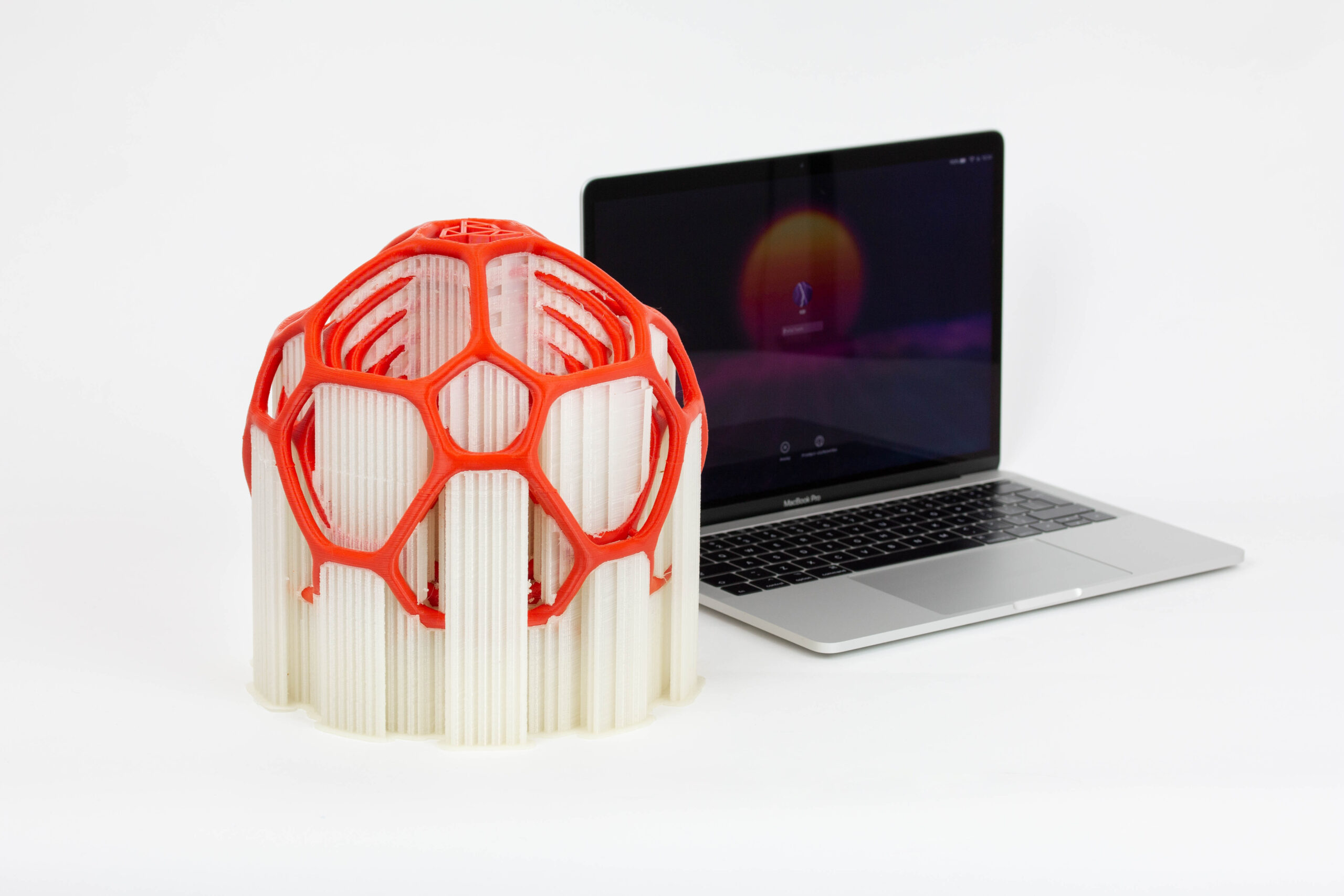Technology
Fused Filament Fabrication
- Ability to create internal infills for the part to have a lightweight structure, variable infill density
- Ability to use a wide range of advanced and high-performance engineering materials
- Unparalleled design freedom and short lead times
Contact info
Get in Touch with us!
Your idea is safe [we can sign an NDA]










Order process
-
Submit a request
-
Receive professional support in the selection of technology and materials
-
Order your parts
online -
Receive
your parts
Materials
Commodity Polimers
Advanced Engineering Polymers
High Performance Polymers
Technical information
How does FFF technology work?
- The process starts with a CAD model transformed into a printable format.
- Material is distributed by a moving print head that extrudes a heated thermoplastic in a pattern, path-by-path, onto a build platform.
- The build plate descends slightly and the process is repeated layer by layer until the build is complete.
Technology includes the use of a second material to create support structures that can be dissolved or physically removed after the build has been completed.

Finishing options
Trusted by Engineers

Why us?

We operate globally

Backed by a team with years of experience in the field of additive manufacturing technologies, design and machine construction

Trusted by thousands of engineers around the world
Q&A
How look like of FFF process printing?
FFF 3D Printing: FFF stands for Fused Filament Fabrication, which is a common 3D printing process. In FFF 3D printing, a thermoplastic filament is heated and extruded layer by layer to create a three-dimensional object. The printer nozzle moves in the X, Y, and Z axes to build up the object from the bottom up. The layers adhere to each other as they cool, creating a solid printed structure.
Why FDM is so popular?
Fused Deposition Modeling (FDM) is a popular 3D printing technology for several reasons: is cost-effectiveness, FDM supports a wide range of thermoplastic materials, including PLA, ABS, PETG, and more, FDM printers are relatively easy to set up and operate.
What is the difference between SLA and FFF?
SLA and FFF are two different 3D printing technologies, each with its own set of characteristics and processes. Uses a process called stereolithography, where a liquid resin is cured layer by layer using a UV light source. The object is built upside down on a build platform submerged in the liquid resin. Also known as FDM (Fused Deposition Modeling) or Fused Filament Fabrication, it involves extruding thermoplastic filament through a heated nozzle onto a build platform layer by layer.
Custom manufacturing services

3DGence Services-FAQ
As the Additive Manufacturing industry has quickly evolved, many organizations are evaluating options and technologies to speed up their design and engineering needs. Choosing the right technology, material, and application can be a daunting and expensive task. To help develop the right business case, or to keep capital and operating expenses down, many users are turning to additive manufacturing services to augment their internal capabilities and narrow the technology and application requirements for project success. Read more

3D printer with a system of interchangeable printing module
Manufacturers of machinery used in various industries have been focusing their attention on the production of modular construction machines for many years. As a user, we get a machine in a basic configuration, and then, depending on our application and needs, we expand the purchased device with dedicated modules or tools specialized for a specific range of work. Read more

3DGence 3D Printing Services
Professional Additive Manufacturing Services are another option qualifying, evaluating, and adopting 3D printing technology to your business needs. Along with top-notch hardware and a wide range of materials, our company offers 3Dprinting services using multiple technologies. Read this article and explore the unlimited possibilities of AM services available at 3DGence. Read more
 Deutsch
Deutsch Polski
Polski Français
Français Americas
Americas





